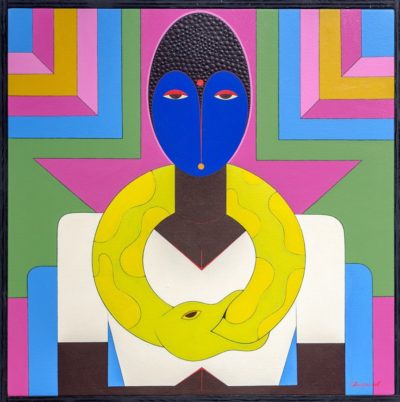by CHIGOZIE ONYEMA

Today, we celebrate fifty years of the National Black Law Students Association (BALSA) which started right here at NYU. As we celebrate fifty years of what is now the largest student organization in the country, I am reminded of where we were as a people, and a nation, when the likes of A.J. Cooper convened his peers to create this space.
We were in the midst of a Second Reconstruction. We could still smell the smoke and see the embers across the bridge from the rebellion in Newark. We were four years before the National Black Political Convention in Gary, and five years after Dr. King shared a dream on the steps of the Lincoln Memorial. It was not just any dream. It was a dream that rough places will be made plain and crooked places would be made straight. It was a dream to make real the promises of democracy. But most importantly, it was about depositing a bad check. Dr. King said that the Constitution and the Declaration of Independence were a promissory note and America defaulted on that note to Black people. In essence, America gave us a check which came back marked insufficient funds. But Dr. King refused to believe that there was no money left in the Bank of Justice, so we showed up on a Wednesday in August to present the check.
The founding of this organization was a check too. When students created this organization they understood the meaning of the promissory note, and refused to accept the idea that the presence of Black people in law schools would remain an anomaly. They refused to accept the idea that the legal community would remain hostile, or even indifferent, to the needs of the Black community. In the midst of the Second Reconstruction, students at NYU discovered their mission and sought to fulfill it with a vehicle that stood the test of time. A vehicle that many of us in this room joined and served. A vehicle that, along with the likes of the Student Nonviolent Coordinating Committee, the Congress of Racial Equality, and the National Association for the Advancement of Colored People, searched for light in dark places. Vehicles that rejected austerity and war. Vehicles that rejected misogyny and inequality. Vehicles that rejected racism and bigotry. While we have not fully redeemed BALSA’s check, this room is evidence that we withdrew some money, but not all of the funds. It is also evidence that we must keep marching forward.
As we move toward a Third Reconstruction, one that addresses much of what we fought for in the first and second, it is the responsibility of a new generation, as Frantz Fanon reminds us, to discover our mission and fulfill or betray it.[1] What vehicles will we create or reimagine? What tools will we use or discard? How will we push, prod, and force America to make real the promises of democracy? Everything that is, was. Before Donald Trump, there was Barry Goldwater, Richard Nixon, and even Ronald Reagan. Each exceptional in their own way to a generation that found themselves at the bottom. And as we learned fifty years ago—and seventy years before that—when those at the bottom stand up, we shake the foundations of injustice. When we stand together, we extend our struggle for democracy and citizenship to those who speak another language. When we stand together, we confront state violence against Black life, we erase red lines around our cities, and we discover a cure to the “Great American Disease”—defined by Audre Lorde as sexism.[2]
What will we do? How will we fight? Many of us in this room are lawyers, or chose the law as a means to realize our unique human potential. After all, the law has been an important tool to navigate what Amiri Baraka, following W.E.B. Du Bois, called our Sisyphus dilemma.[3] But it is not the law alone. We learned this important lesson through the Montgomery Bus Boycott. Baton Rouge organized a bus boycott two years before Dr. King led the resistance on the southern bank of the Alabama River. But Baton Rouge made the mistake of choosing between the courts and mass protest. Their boycott was defeated, because the leaders called it off when they decided to take the issue to court. As a result, the judge delayed action for a few months, then threw the case out. The Montgomery Improvement Association met with the leaders in Baton Rouge and learned from this mistake. And the rest is as they say history.
As we engage in the important work of a Third Reconstruction, we must organize and litigate. We must protest and legislate. We must remain principled in compromise. We have to use every tool at our disposal and remember the important lessons and contributions of those that came before us.
I am humbled by this honor. But the greatest honor is to be here with all of you, to renew friendships, to sit at the feet of elders, to remember ancestors, to seek truth, and to fight all that is ugly. We are the what is of what was. We belong to a tradition. A tradition older than our struggle in America, and as new as our latest effort. Let us continue in that tradition. Let us discover our mission and never betray it. Because victory is ours, if we’re willing to fight for it.
Thank you. Be encouraged. Godspeed.
Speech delivered at the BALSA 50th Anniversary Gala, where the author received an Alumni Award.
